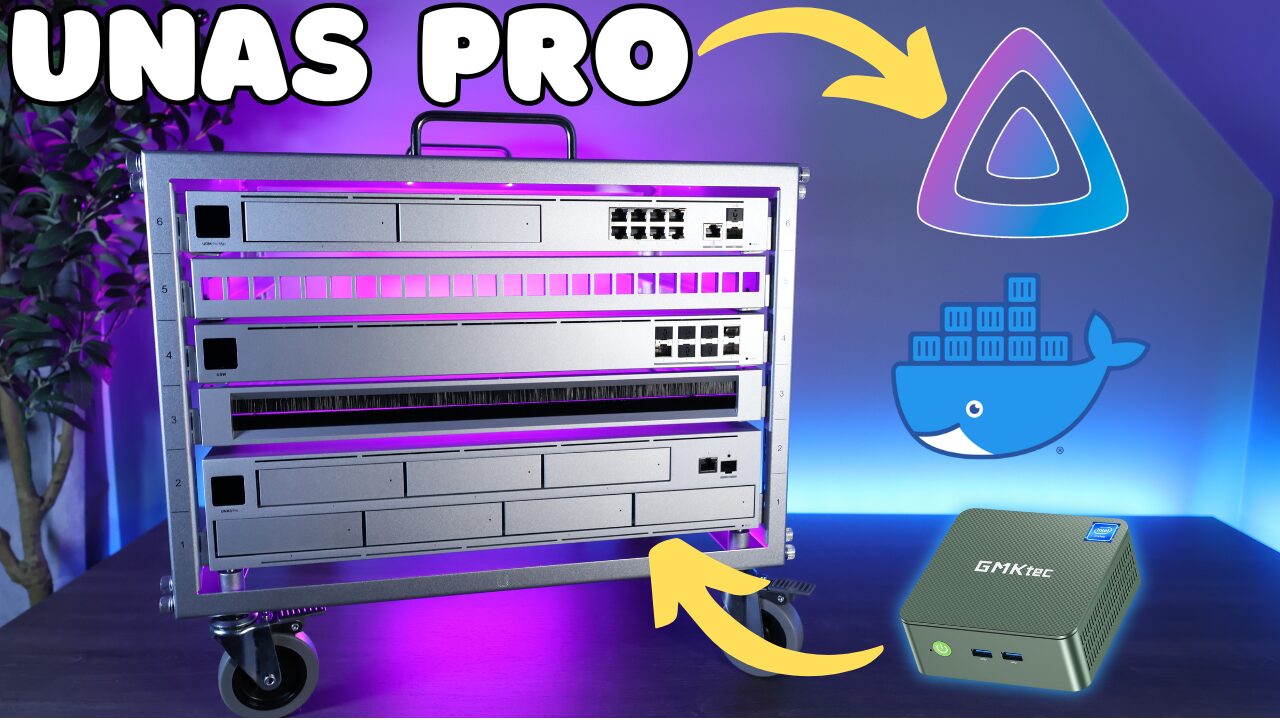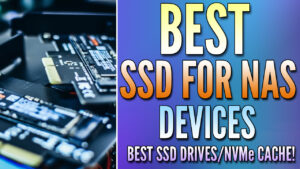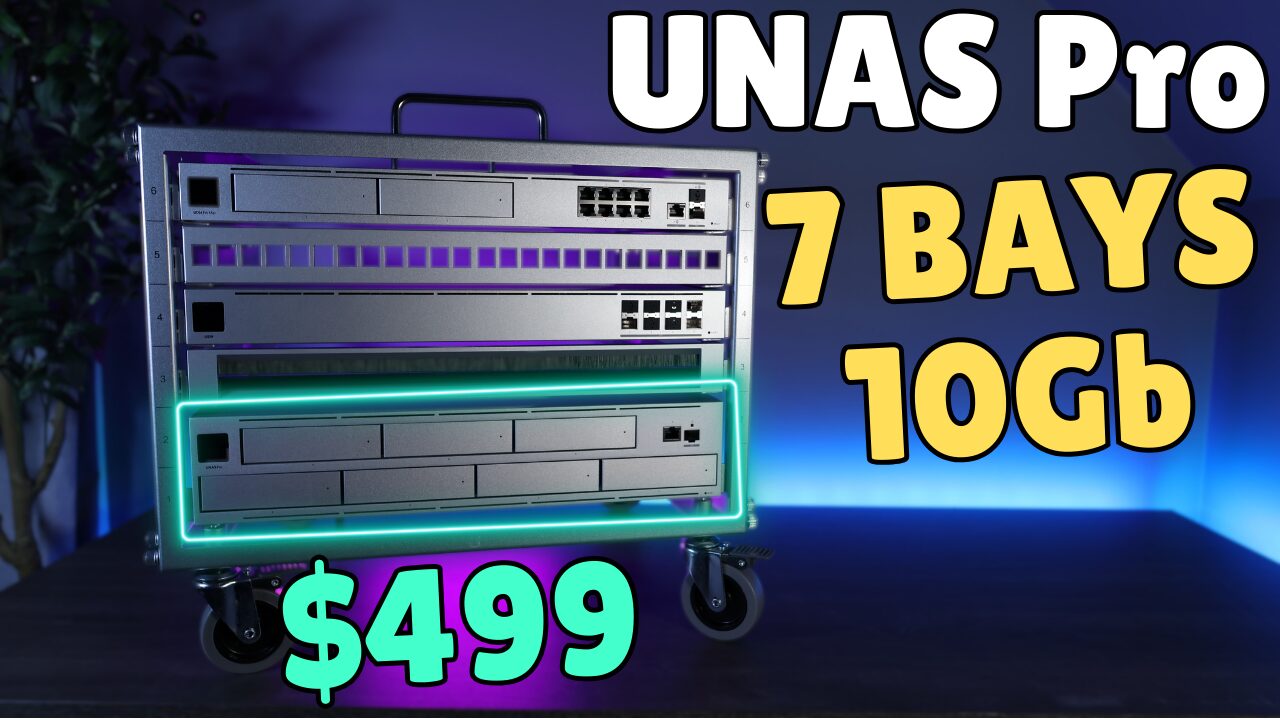In this article, we are going to look at the best hard drives for NAS devices. Whether you’ve built a DIY NAS with TrueNAS, Unraid, or OpenMediaVault, or are comparing hard drives for pre-built NAS devices, selecting the correct hard drive is extremely important.
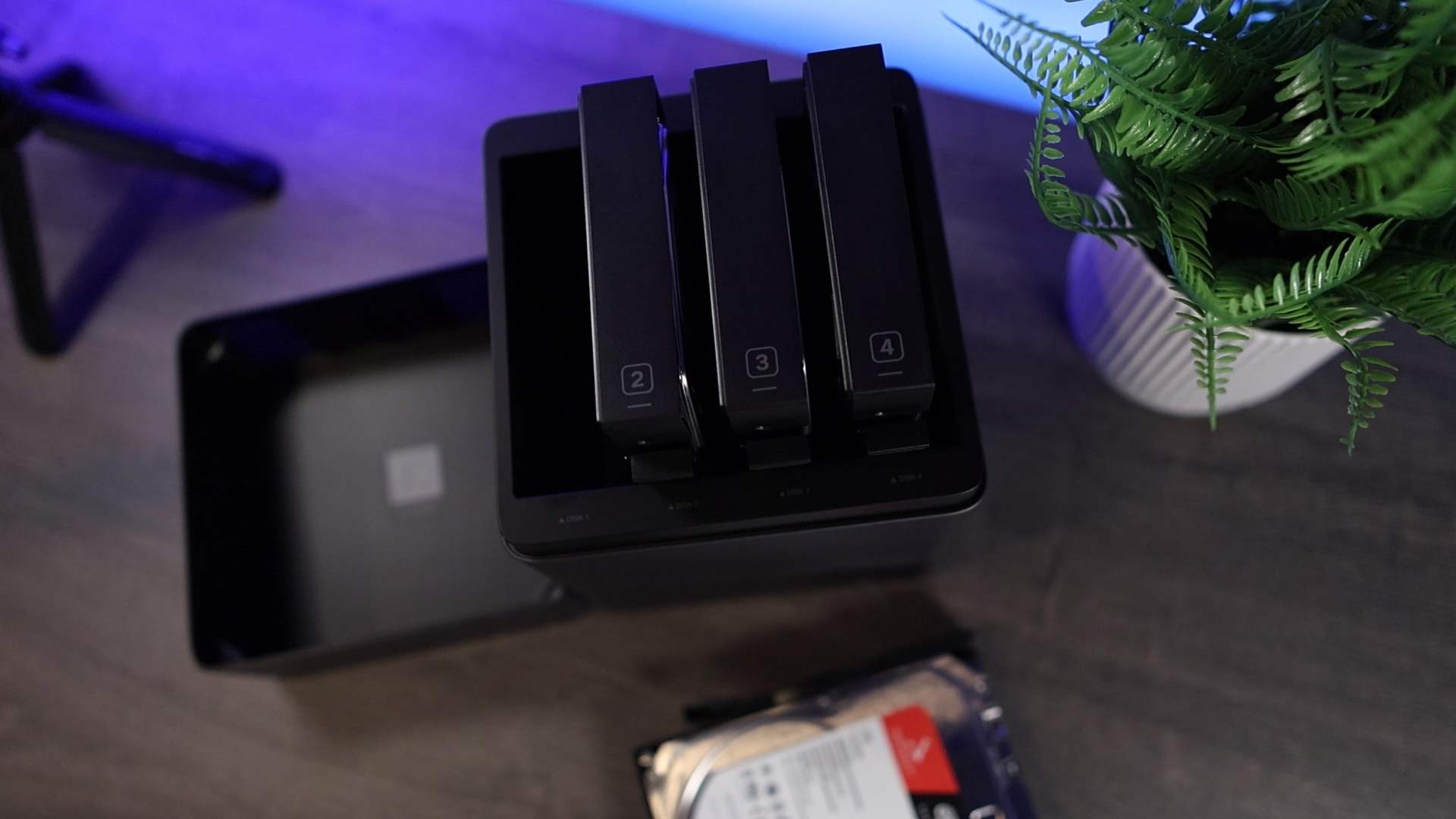
This could be the difference between having an extremely reliable NAS and constantly running into storage issues.
The links below are Amazon affiliate links, which means that I earn a percentage of each sale at no cost to you. Thank you for your support.
Why You Should Use NAS Drives
There are two main reasons why you want to use NAS hard drives as opposed to desktop hard drives. NAS drives are designed for 24/7 continuous operation, while desktop drives aren’t.
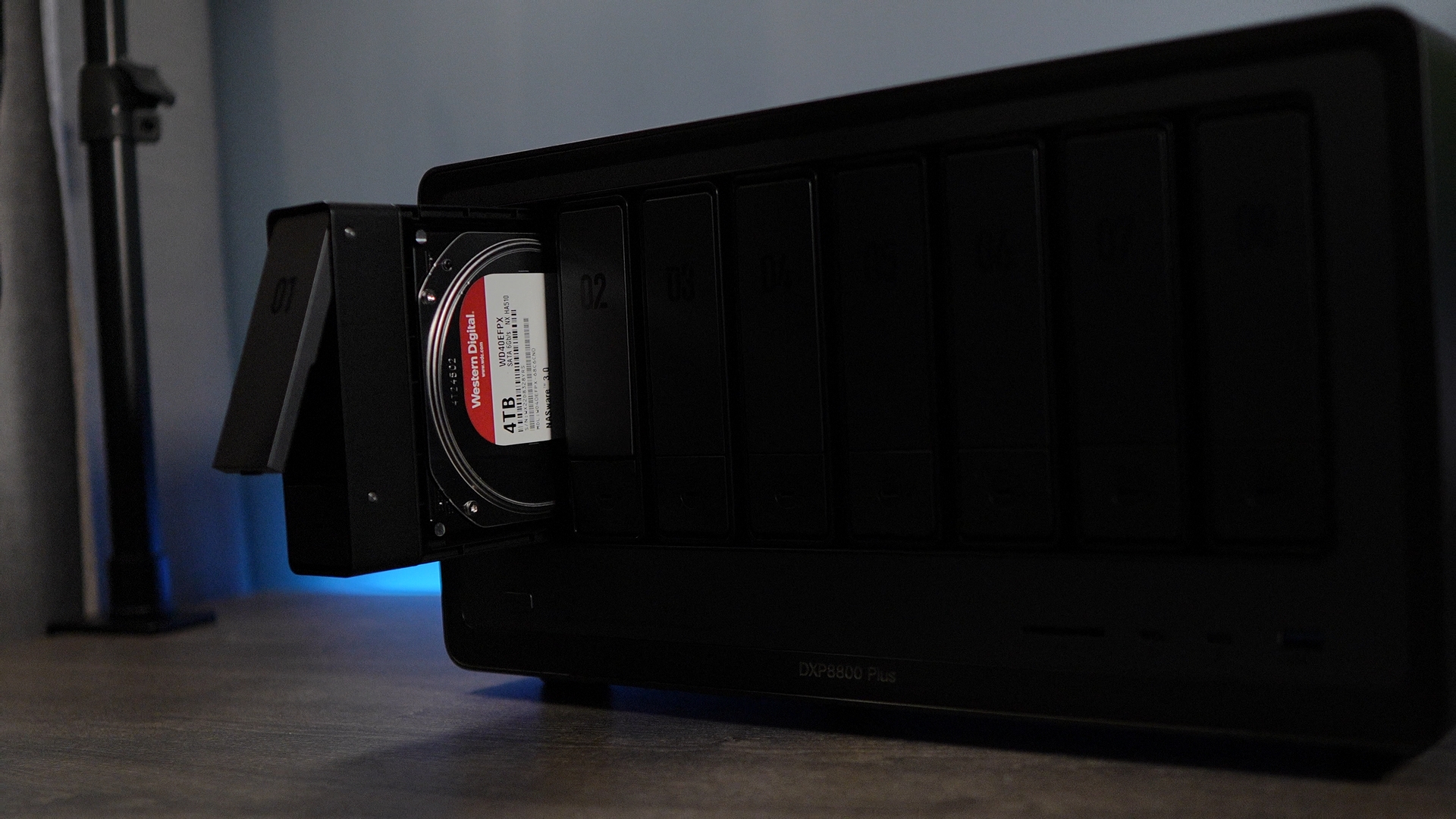
NAS hard drives also have thermal controls and anti-vibration technology that helps to minimize vibrations, which can become a major problem for NAS devices since multiple hard drives are spinning at the same time (and normally, next to each other).
For this reason, there are almost no circumstances where utilizing a desktop-grade hard drive in a NAS is a good option for long-term usage.
The next point is around CMR vs SMR, as CMR drives are generally recommended for 24/7 NAS operation when utilizing RAID. This improves performance while also improving things like RAID rebuild times. Depending on the drive you select, you can have great performance and reliability (CMR) or a very poor experience (SMR). To summarize, always select a CMR drive for RAID operations.
How to Prepare for Hard Drive Failures
Before we compare the best NAS hard drives that you can use, you should be aware that all hard drives fail (at some point). That’s an unfortunate reality, and while hard drive failure statistics exist (meaning that some brands and drive types generally fail less than others), it’s important to remember that they all will fail at some point.
The only way of really protecting yourself in these situations is by ensuring a strong warranty exists so that if a drive fails early, you can use its warranty. Without getting too deep into specifics, hard drives generally fail early or late. Meaning that you have a higher chance of them failing when they’re new (very early in their life), or when they’re old and you already know they need to be replaced.
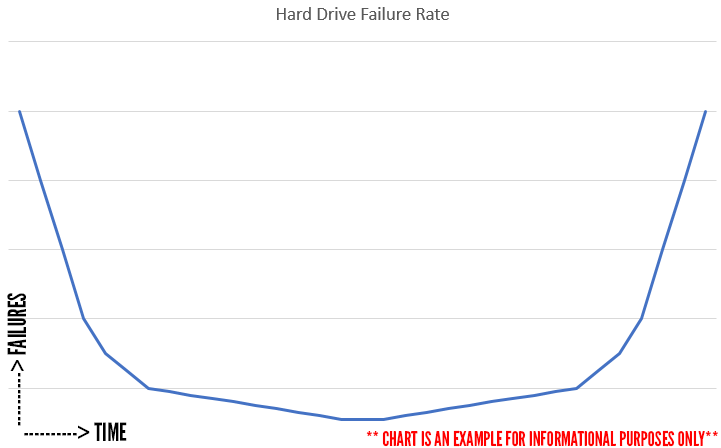
In the middle, that’s when things generally seem to work well. You passed the hurdle of early failure, and you’re just waiting until the drive gets old and it eventually fails. Of course, this isn’t always the case, but it’s a good general guideline. Depending on the NAS operating system you’re using, ensuring that S.M.A.R.T tests run can help protect you in these scenarios, so that you’re at least aware when a hard drive has started to fail and can prepare for its replacement.
Best Hard Drives for NAS Devices: Recommendations
I’ve used all types of NAS hard drives, from Seagate IronWolf NAS drives to Western Digital Red drives (only CMR) and even newer Synology drives. The IronWolf Pro drives below are generally my favorite and are slightly superior (better workload rates and warranty, plus Seagate Rescue Data Recovery) than their IronWolf counterpart.
With that said, NAS drives are generally rated on a price-to-terabyte ratio when you’re purchasing them, as you want the best overall drive, storage, and price, so I recommend all of the drives below and price should be the deciding factor.
Seagate IronWolf: Best Budget NAS Drive
Seagate IronWolf drives are the “consumer” version of their NAS drive, meaning they have a shorter warranty, less performance, and will generally perform worse than IronWolf Pro drives, but they’re still great.
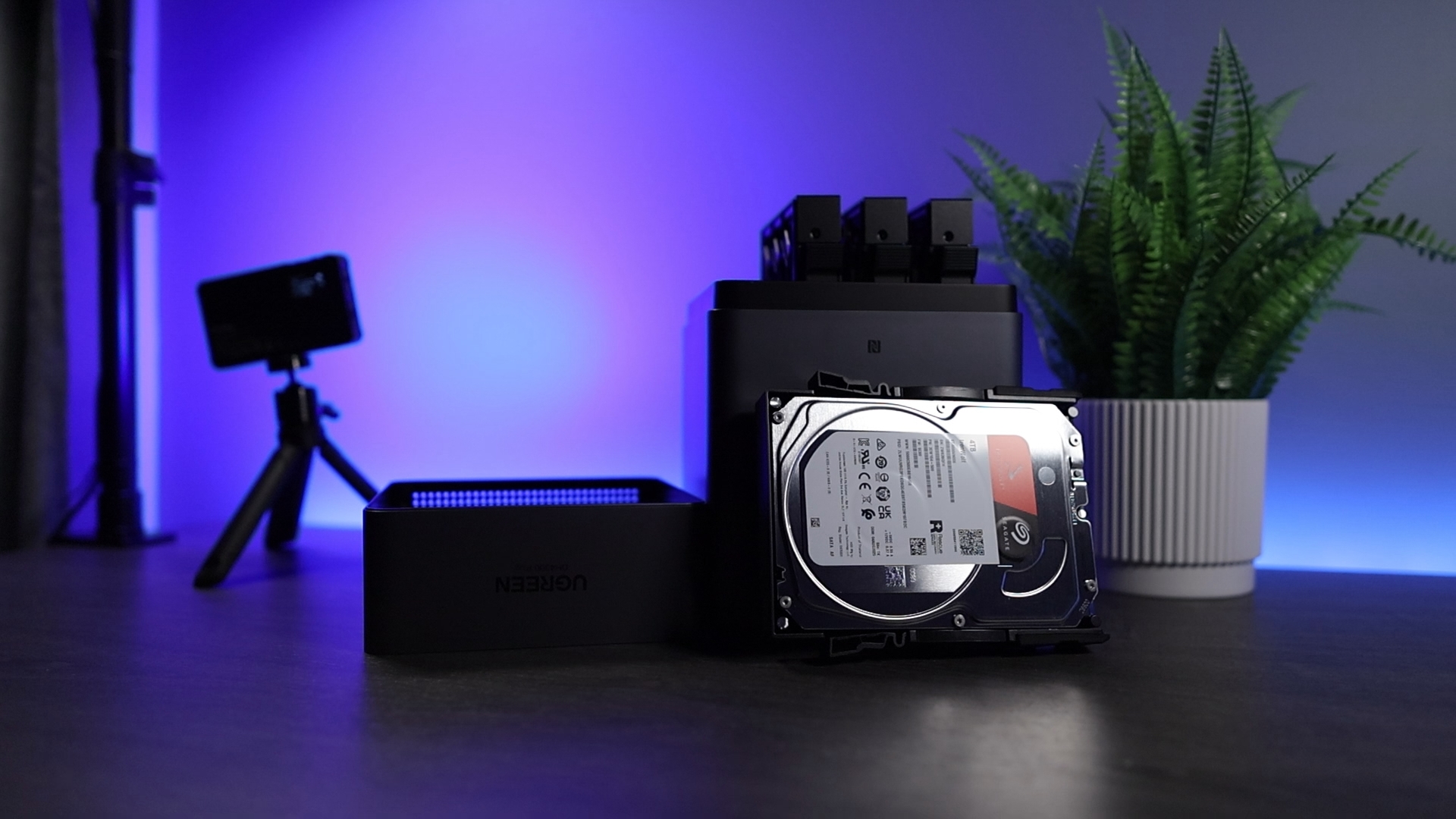
I have a bunch of 12TB versions that I’ve had for years, and they’re great!
Warranty: 3-year
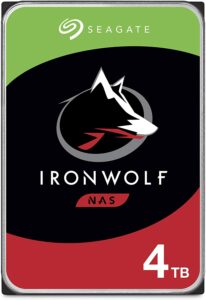
Seagate IronWolf Pro: Best Hard Drive for NAS Devices
Better in every single way than the regular IronWolf drives. Better performance, longer warranty, and if there was a single drive that I had to buy, this is it. The best NAS hard drive you can buy for consumers.
Warranty: 5-year
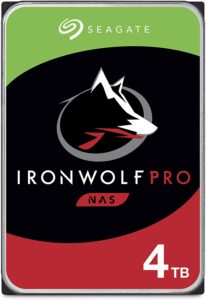
- 4TB IronWolf Pro
- 6TB IronWolf Pro
- 8TB IronWolf Pro
- 10TB IronWolf Pro
- 12TB IronWolf Pro
- 14TB IronWolf Pro
- 16TB IronWolf Pro
- 18TB IronWolf Pro
Western Digital Red: (WD Red Plus/WD Red Pro)
Western Digital drives are very similar to Seagate’s IronWolf drives and are a great alternative. With that said, my personal preference has always been Seagate, but Western Digital Red drives are generally good NAS drives as well, and I have and use many of them.
It’s important to know that Western Digital was caught selling SMR drives that weren’t advertised as SMR drives and quickly changed their marketing to reflect that, so make sure that you purchase a CMR drive, which is what should be used with RAID.
At this point, Western Digital Red drives are SMR drives, whereas Red Plus drives are CMR drives. Western Digital Red Pro drives are unchanged.
It’s difficult to explain if SMR drives will impact your workflow (since there are tons of factors), but for the most part, you should never use SMR drives in NAS devices utilizing RAID.
Western Digital Red Plus
The consumer version (similar to the regular IronWolf) NAS drive from Western Digital. These are CMR Drives.
Warranty: 3-year
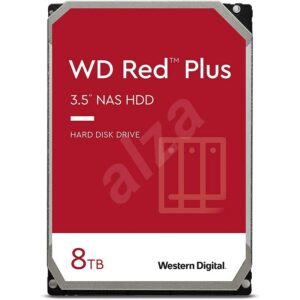
Western Digital Red Pro
The Pro version is better in just about every way than the regular Western Digital Red Plus drives. Similar to the IronWolf Pro drives.
Warranty: 5-year
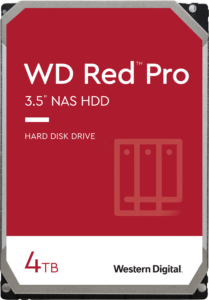
- 4TB WD Red Pro
- 6TB WD Red Pro
- 8TB WD Red Pro
- 10TB WD Red Pro
- 12TB WD Red Pro
- 14TB WD Red Pro
- 16TB WD Red Pro
- 18TB WD Red Pro
- 20TB WD Red Pro
Final Thoughts on the Best NAS Hard Drives & Which to Pick
This article looked at the best hard drives for NAS devices. In general, selecting the right NAS hard drive is the most important thing you can do after determining what device you’d like to use it in. This is what holds your data, and having a strong drive with good performance and reliability is the most important part of your entire NAS device, so don’t skimp out in this area.
Thanks for checking out the article on the best hard drives for NAS devices!

